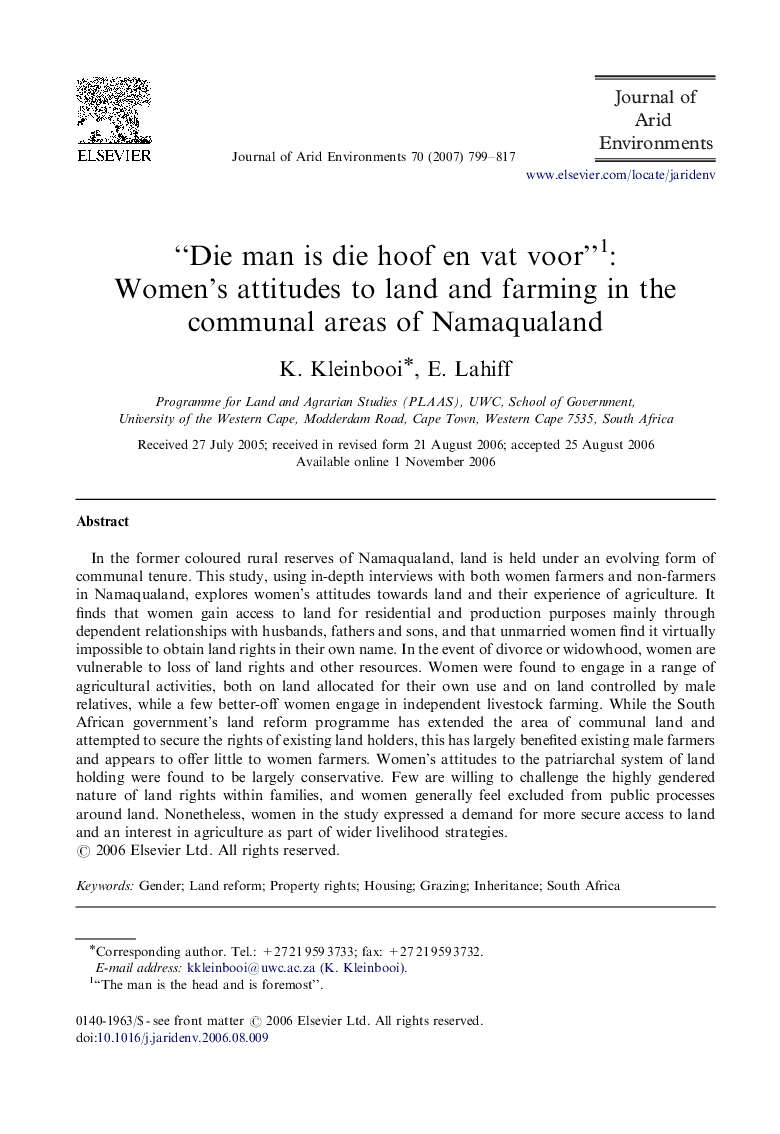| Article ID | Journal | Published Year | Pages | File Type |
|---|---|---|---|---|
| 4394327 | Journal of Arid Environments | 2007 | 19 Pages |
In the former coloured rural reserves of Namaqualand, land is held under an evolving form of communal tenure. This study, using in-depth interviews with both women farmers and non-farmers in Namaqualand, explores women's attitudes towards land and their experience of agriculture. It finds that women gain access to land for residential and production purposes mainly through dependent relationships with husbands, fathers and sons, and that unmarried women find it virtually impossible to obtain land rights in their own name. In the event of divorce or widowhood, women are vulnerable to loss of land rights and other resources. Women were found to engage in a range of agricultural activities, both on land allocated for their own use and on land controlled by male relatives, while a few better-off women engage in independent livestock farming. While the South African government's land reform programme has extended the area of communal land and attempted to secure the rights of existing land holders, this has largely benefited existing male farmers and appears to offer little to women farmers. Women's attitudes to the patriarchal system of land holding were found to be largely conservative. Few are willing to challenge the highly gendered nature of land rights within families, and women generally feel excluded from public processes around land. Nonetheless, women in the study expressed a demand for more secure access to land and an interest in agriculture as part of wider livelihood strategies.
